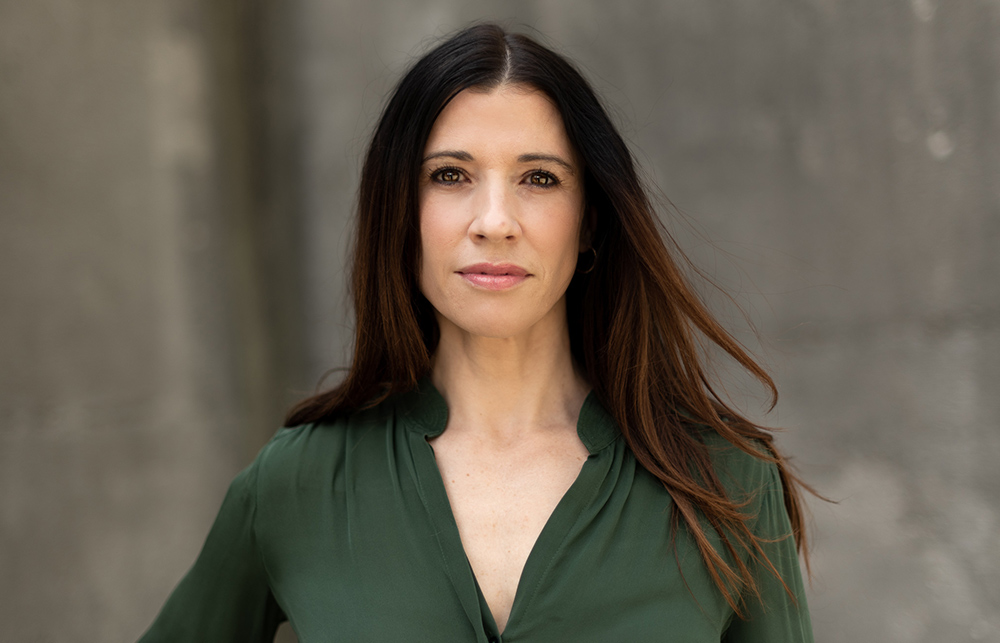
疫情来袭之前,玛丽亚·科拉库西奥已经为薪酬权益软件公司Syndio的A轮募资奔忙了两个月。期间她不断从西雅图总部前往湾区,也是投资人聚集之处。突然之间,一切按下了暂停键。像很多首席执行官一样,她改为在家办公,不过有一点跟其他首席执行官不同,她还要照顾六个孩子。
面对种种艰难状况,科拉库西奥还是宣布,Syndio已经与领投方Voyager Capital和代表劳伦·鲍威尔·乔布斯从事非营利和营利业务的Emerson Collective达成了750万美元的A轮融资协议。
科拉库西奥曾经在星巴克担任高管,当前为Syndio募集资金可能遭逢了最糟糕的时机,但公司还是实现了突破。她认为,随着各公司适应疫情的现实,融资可能变得容易一些。科拉库西奥认为,之所以能融资成功,主要因为两个看似矛盾的因素。首先,雇主担心面临诉讼。“面临薪酬性别歧视诉讼的公司,几乎都是《财富》美国500强里的明星。”她说。第二,“进步的思考者希望回首过去时能保证充分考虑公平性。进步的领导人都很关注遗留问题:‘疫情过去,我会得到怎样的评价?我是不是不够重视公平性?’”
Syndio的平台帮助企业对员工薪酬进行实时分析,捕捉差异,并创建假设情景,模拟各种差异随着每次招聘、晋升或裁员如何变化。市场公认该软件既能用来评估在职员工薪酬,也可以用来判断是否要裁员,其最大竞争对手则是之前从事年度薪酬分析的律师事务所。(Syndio也确实使用了自家软件,新冠危机爆发以来,公司的30多名员工已被裁掉7名。)
主要投资早期B2B软件公司的Voyager Capital投资人黛安·弗雷曼认为,薪酬权益软件是“区分员工团队的基础”,她说。参与此次交易的Emerson Collective投资人费恩·曼德尔鲍姆则从职场权益的角度看待该产品。虽然Emerson并未公开投资组合,但向来重视使命导向,之前其最著名的案例是鲍威尔·乔布斯投资《大西洋月刊》(The Atlantic)。曼德尔鲍姆在斯坦福大学商学院教的课程叫“设计权益:打造多元化且包容的公司”。“支付给员工的工资就是很明确的评价。”曼德尔鲍姆说。
Syndio的软件目前约有60家客户,包括Adobe、Match Group、诺德斯特龙、Slack和塔吉特超市等。虽然Syndio称其软件平台相当完善,但也有一些初创企业进入该领域展开了竞争。
疫情期间,软件也开辟了新用法。有企业使用Syndio分析裁员对象的性别和种族趋势,裁员后立即对精简的员工群体进行薪酬分析。科拉库西奥表示,一些客户告诉她,由于疫情影响下公司股票受到重创,已经有员工要求调整薪酬。相关雇主正利用软件平台分析,调整部分员工基于股票的薪酬对整体公平性的影响。
在企业界陷入极度混乱之际,科拉库西奥努力向投资人推销软件,其实她没有面对面见过Emerson Collective的投资人。与此同时,她的丈夫在西雅图的健身房关闭歇业,在家照管6个两岁到13岁的孩子,还得辅导功课。他们每天的休息就是八口之家去附近跑一跑。
科拉库西奥说:“困在家的两个星期里,我们全都围坐在桌旁,孩子们说:‘妈妈看起来压力好大。’最后当我接到(募资成功)电话时,我们也全都坐在桌子旁。跟家人分担压力,还有胜利的瞬间,感觉很酷。”(财富中文网)
译者:Feb
疫情来袭之前,玛丽亚·科拉库西奥已经为薪酬权益软件公司Syndio的A轮募资奔忙了两个月。期间她不断从西雅图总部前往湾区,也是投资人聚集之处。突然之间,一切按下了暂停键。像很多首席执行官一样,她改为在家办公,不过有一点跟其他首席执行官不同,她还要照顾六个孩子。
面对种种艰难状况,科拉库西奥还是宣布,Syndio已经与领投方Voyager Capital和代表劳伦·鲍威尔·乔布斯从事非营利和营利业务的Emerson Collective达成了750万美元的A轮融资协议。
科拉库西奥曾经在星巴克担任高管,当前为Syndio募集资金可能遭逢了最糟糕的时机,但公司还是实现了突破。她认为,随着各公司适应疫情的现实,融资可能变得容易一些。科拉库西奥认为,之所以能融资成功,主要因为两个看似矛盾的因素。首先,雇主担心面临诉讼。“面临薪酬性别歧视诉讼的公司,几乎都是《财富》美国500强里的明星。”她说。第二,“进步的思考者希望回首过去时能保证充分考虑公平性。进步的领导人都很关注遗留问题:‘疫情过去,我会得到怎样的评价?我是不是不够重视公平性?’”
Syndio的平台帮助企业对员工薪酬进行实时分析,捕捉差异,并创建假设情景,模拟各种差异随着每次招聘、晋升或裁员如何变化。市场公认该软件既能用来评估在职员工薪酬,也可以用来判断是否要裁员,其最大竞争对手则是之前从事年度薪酬分析的律师事务所。(Syndio也确实使用了自家软件,新冠危机爆发以来,公司的30多名员工已被裁掉7名。)
主要投资早期B2B软件公司的Voyager Capital投资人黛安·弗雷曼认为,薪酬权益软件是“区分员工团队的基础”,她说。参与此次交易的Emerson Collective投资人费恩·曼德尔鲍姆则从职场权益的角度看待该产品。虽然Emerson并未公开投资组合,但向来重视使命导向,之前其最著名的案例是鲍威尔·乔布斯投资《大西洋月刊》(The Atlantic)。曼德尔鲍姆在斯坦福大学商学院教的课程叫“设计权益:打造多元化且包容的公司”。“支付给员工的工资就是很明确的评价。”曼德尔鲍姆说。
Syndio的软件目前约有60家客户,包括Adobe、Match Group、诺德斯特龙、Slack和塔吉特超市等。虽然Syndio称其软件平台相当完善,但也有一些初创企业进入该领域展开了竞争。
疫情期间,软件也开辟了新用法。有企业使用Syndio分析裁员对象的性别和种族趋势,裁员后立即对精简的员工群体进行薪酬分析。科拉库西奥表示,一些客户告诉她,由于疫情影响下公司股票受到重创,已经有员工要求调整薪酬。相关雇主正利用软件平台分析,调整部分员工基于股票的薪酬对整体公平性的影响。
在企业界陷入极度混乱之际,科拉库西奥努力向投资人推销软件,其实她没有面对面见过Emerson Collective的投资人。与此同时,她的丈夫在西雅图的健身房关闭歇业,在家照管6个两岁到13岁的孩子,还得辅导功课。他们每天的休息就是八口之家去附近跑一跑。
科拉库西奥说:“困在家的两个星期里,我们全都围坐在桌旁,孩子们说:‘妈妈看起来压力好大。’最后当我接到(募资成功)电话时,我们也全都坐在桌子旁。跟家人分担压力,还有胜利的瞬间,感觉很酷。”(财富中文网)
译者:Feb
Maria Colacurcio was two months into raising a Series A round for her company, the pay equity software platform Syndio, when her constant travel from her Seattle HQ to the Bay Area—home to the investors she was courting—ground to a halt. Like many CEOs, she pivoted to conducting her company’s business from home. Unlike many CEOs, she had to get the job done with six kids in the house.
Under those extraordinary circumstances, Colacurcio today announced that Syndio has closed a $7.5 million Series A funding deal with lead investors Voyager Capital and the Emerson Collective, the organization that does a mix of nonprofit and for-profit work on behalf of Laurene Powell Jobs.
Although Colacurcio was raising money for Syndio at what may have been the worst possible time—the former Starbucks executive thinks the task would likely be easier now that companies have settled into the new realities of the pandemic—the platform’s product was able to break through. Colacurcio attributes that success to two seemingly contradictory factors. First, employers’ fear of facing litigation. “The list of companies facing gender pay litigation—it’s a who’s who of the Fortune 500,” she says. And second, “More progressive thinkers want to look back and be able to say they kept fairness in mind. Progressive leaders are focused on legacy: ‘How will I be judged post-COVID? Did I allow fairness to take a backseat?’”
Syndio’s platform enables companies to perform real-time analyses of employee compensation, catching discrepancies and creating what-if scenarios that model how those gaps change with every hire, promotion, or layoff. And while the software has been marketed as a tool to evaluate pay for current employees—its biggest competition comes from the law firms that traditionally perform annual compensation analyses—it can also be used as companies make decisions about layoffs. (Syndio used its own tool for that purpose: The startup has laid off seven of its 30 or so employees since the coronavirus crisis began.)
Investor Diane Fraiman of Voyager Capital, which funds early stage B2B software companies, sees the pay equity software as a “foundational building block of future-of-workforce disruption,” she says. Fern Mandelbaum, the Emerson Collective investor involved in the deal, views the product through the lens of workplace equity. Emerson, though private about its full portfolio of investments—the best-known is Powell Jobs’ backing of The Atlantic—is known for its mission-driven tilt; Mandelbaum teaches a Stanford Graduate School of Business course called “Equity by Design: Building Diverse and Inclusive Organizations.” “What you pay people is an incredibly clear measure of how you value people,” Mandelbaum says.
Syndio’s software is in use by about 60 clients, including Adobe, Match Group, Nordstrom, Slack, and Target. A handful of startups also compete in the space, although Syndio points to the sophistication of its software platform as a differentiator.
The program is already encountering new use cases during the pandemic. Companies are using Syndio to analyze the gender and racial trends in whom they have decided to lay off—and, once layoffs have been made, to do an updated pay analysis on their newly reduced workforce. Colacurcio says that some clients have told her they’ve had employees ask to have their comp packages adjusted as the company’s stock gets hammered amid concerns over the pandemic; those employers are using the platform to analyze the pay-equity impact of adjusting select employees’ stock-based compensation.
As Colacurcio pitched the platform to investors at the peak of corporate confusion—she never met her Emerson Collective backers in person—her husband, who owns a currently closed Seattle gym, took the reins on homeschooling and childcare for their kids, ages 2 to 13. Their daily break was an eight-person family neighborhood run.
“For two weeks at home, we’d all be sitting around the table, and they would say, ‘Mommy seems really stressed,’” Colacurcio says. “Then at the end, when I got the call, we were all sitting around that same table. It was cool to share the stress with them and the win of that moment.”






